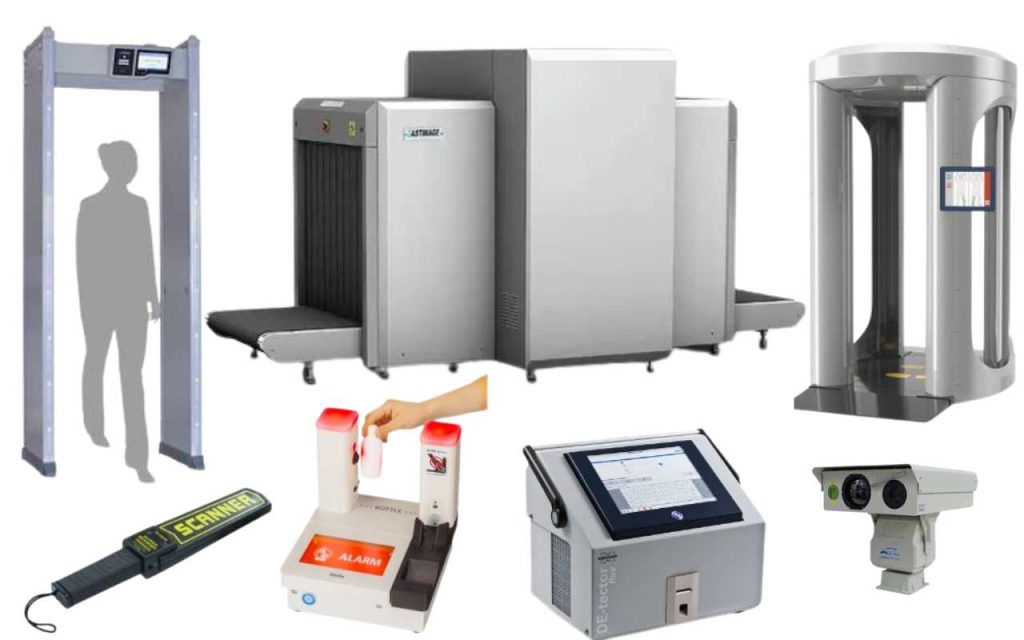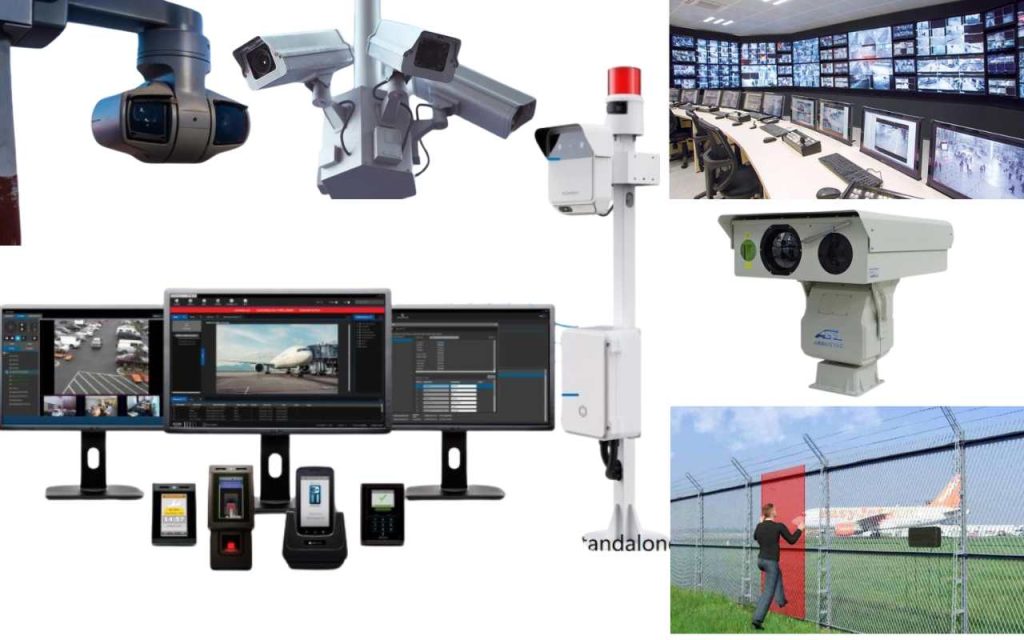Exploring Airport Security Systems in China in 2025
China’s booming aviation industry necessitates a robust and ever-evolving airport security system. As passenger numbers soar, so does the responsibility to ensure the safety of travelers and crew. This blog post delves into the intricate world of Chinese airport security, exploring the technologies, regulations, and benefits that safeguard the skies.

The Arsenal of Security
Chinese airport security boasts a sophisticated arsenal of equipment, developed by a network of aviation security equipment suppliers and Chinese airport security technology providers. These include:
- X-ray Scanners: These workhorses of security, using X-rays to reveal the contents of baggage, are a familiar sight for every traveler.
- Body Scanners: Millimeter wave scanners and body scanners, while not as ubiquitous, are increasingly deployed for more thorough passenger screening.
- Metal Detectors: These detect any hidden metal objects, a crucial first line of defense.
- Explosive Detection Systems (EDS): These advanced systems sniff out explosives and other dangerous materials in luggage and cargo.
- Baggage Handling Systems: These automated conveyor belts expedite luggage screening, improving efficiency.
- CCTV (Closed-Circuit Television): A network of security cameras with video analytics capabilities keeps a watchful eye on passenger flow and potential threats.
- Access Control Systems: Keyless entry systems with biometric authentication (fingerprint or iris scan) restrict access to sensitive areas.
A Multi-Layered Approach: Security Measures in Action
Airport security solutions in China encompass a multi-layered approach, with measures in place for:
- Passenger Screening: This involves checks of travel documents, security screenings using the aforementioned equipment, and sometimes even body cavity scanners.
- Baggage Screening: Checked luggage undergoes rigorous X-ray scans and potential explosive trace detection.
- Cargo Screening: Strict protocols ensure cargo is thoroughly inspected for any prohibited items.
- Perimeter Security: Security fences equipped with perimeter intrusion detection sensors safeguard airport grounds. Don’t forget the watchful gaze of CCTV surveillance systems with facial recognition and license plate recognition capabilities.
- Cyber Security: In today’s digital age, robust cyber security measures protect airport operations from cyberattacks.
- Threat Detection and Risk Assessment: Security personnel are trained to identify suspicious behavior and assess potential risks.
Following International Standards
Airport security regulations in China adhere to international guidelines set by the International Civil Aviation Organization (ICAO). Additionally, the national Civil Aviation Administration of China (CAAC) enforces its own set of security protocols. These regulations ensure consistency and effectiveness in airport security practices across the country. Security screening procedures are meticulously defined, leaving no room for ambiguity.
The Tangible Benefits
Benefits of security systems in Chinese airports extend far beyond safeguarding against threats. They offer:
- Enhanced Security: Robust security systems deter crime and create a safer environment for everyone.
- Improved Passenger Safety: Knowing security measures are in place allows passengers to relax and focus on their journeys.
- Reduced Wait Times: Advanced technology like automated baggage handling systems can streamline the security screening process.
- Increased Efficiency: Integrated security systems allow for a smooth flow of passengers and operations.
- Deterrence of Crime: The very presence of sophisticated security systems discourages criminal activity.
The Future of Flight Security
China’s commitment to aviation security is unwavering. Airport safety equipment suppliers and Chinese airport security product manufacturers are constantly innovating, developing cutting-edge technologies like:
- Biometrics: Fingerprint and iris scan technology for seamless and secure passenger identification is being explored.
- Advanced Threat Detection Systems: Systems that can detect a wider range of threats, including chemical and biological agents, are under development.
- Artificial Intelligence (AI): AI-powered video analytics can identify suspicious behavior with greater accuracy, aiding security personnel.
Working Together for a Safe Future
Providers of security solutions for airports in China understand that security is a collaborative effort. Aviation security system developers work closely with airlines, security agencies, and other stakeholders to ensure a comprehensive and effective security system.
Approximate Price List
- Customization: Security systems are highly customized based on airport size, security needs, and chosen technology. A small regional airport will have vastly different needs and pricing compared to a major international hub.
- Proprietary Technology: Many Chinese airport security technology providers develop proprietary systems, making it hard to get a standardized price.
- Integration Costs: Integrating new equipment with existing security infrastructure adds additional costs that can vary significantly.
However, I can offer you a breakdown of estimated price ranges for individual components:
Security Screening Equipment:
- X-ray Scanners (Basic): $10,000 – $50,000 USD
- X-ray Scanners (Advanced): $50,000 – $150,000 USD
- Body Scanners: $100,000 – $250,000 USD (Estimated due to limited deployment)
- Millimeter Wave Scanners: $50,000 – $100,000 USD (Estimated)
- Metal Detectors: $5,000 – $20,000 USD
- Explosive Detection Systems (EDS): $100,000 – $500,000 USD+ (High variation)
Security Management Systems:
- Access Control Systems (Basic): $10,000 – $50,000 USD (Per access point)
- CCTV Systems (Basic): $5,000 – $20,000 USD (Per camera)
- Video Analytics Software: $10,000 – $50,000 USD (Per license)
Additional Considerations:
- Installation Costs: Installation and configuration can add 10-30% to the equipment cost.
- Maintenance Contracts: Expect annual maintenance costs of 5-10% of the equipment value.

A Secure Journey Awaits
By implementing a combination of advanced security technology, stringent regulations, and a multi-layered approach, Chinese airports are forging a path towards a secure and efficient air travel experience. As you embark on your next journey from a Chinese airport, rest assured that a robust security system is safeguarding your skies. So, sit back, relax, and enjoy the flight!
Get a Quote from Top 12 Global Leader Security Systems Manufacturers
FAQs
What items are prohibited in carry-on luggage at Chinese airports?
Similar to most airports, liquids exceeding 100ml, sharp objects, and flammable materials are generally banned.
Are security procedures at Chinese airports different from those in other countries?
Broadly, no. China follows international security guidelines set by ICAO. However, specific procedures or technology used might differ slightly.
How can I expedite the security screening process at a Chinese airport?
Pack efficiently, placing electronics and liquids separately in your carry-on for easy inspection. Familiarize yourself with prohibited items beforehand.











